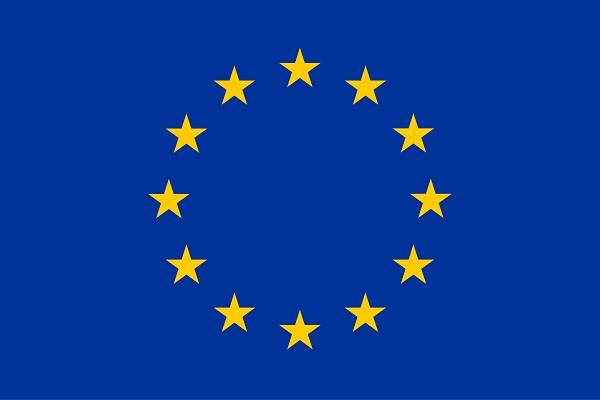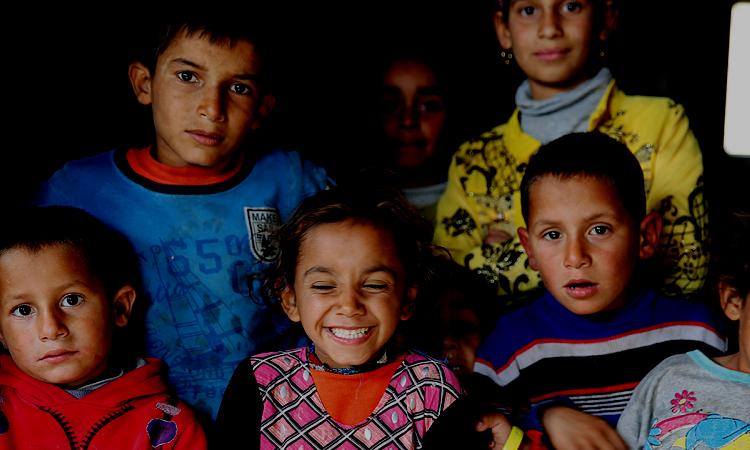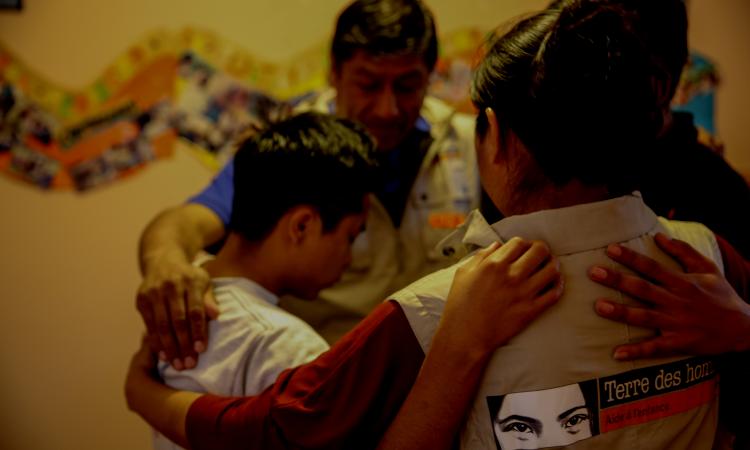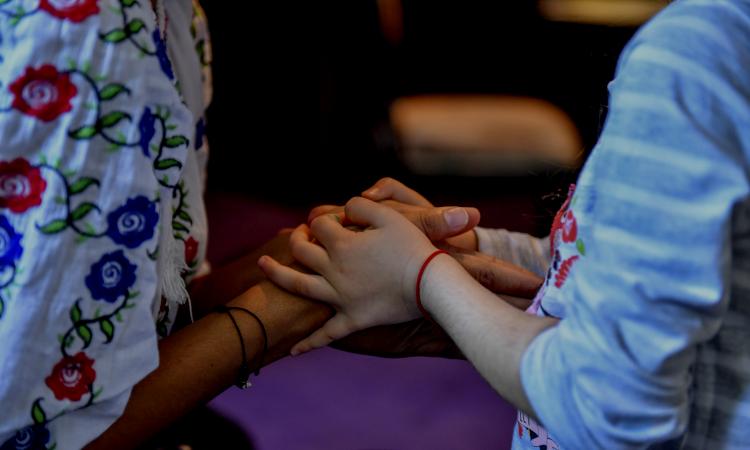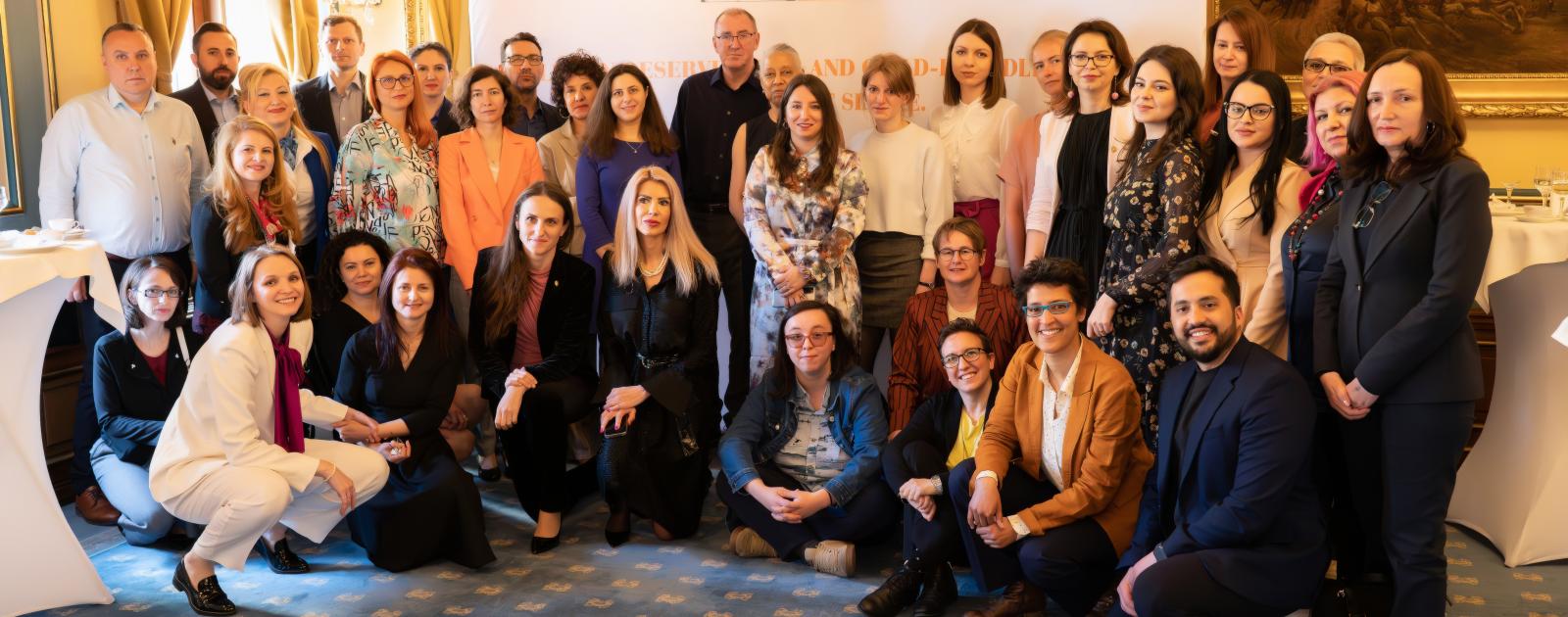
„The system should adapt to children and their needs, not children to the system”, stated Mariama Diallo, coordinator of Child Friendly Justice European Network. International justice experts, specialists from the Ministry of Justice, Ministry of Education, Romanian Parliament Deputies met in Bucharest on 11-12 May 2023 in order to find a way and bring restorative practices closer to children.
„Through these practices we seek to avoid detention, encourage mediation and emotional expression on both sides, so that they reach an agreement” and appearance in court become unnecessary, as Laura Ghica, representative of Terre des hommes Romania, stated.
The meeting was organised by Terre des hommes Romania foundation which recommends introduction of legal education in schools, within the project i-RESTORE 2 – ”Accessible Quality Restorative Justice processes for children in contact with the law in Europe”.
Mr. Nelu Ciobanu, State Secretary in the Ministry of Justice, stated: “The Romanians don’t have yet the culture of dialogue and amicable resolution of conflicts .... Starting with children is a very good idea, (...) because they are the most vulnerable and the most exposed .... Children should be raised in the culture of dialogue and discussing problems. It is good to make them become active participants to processes that concern them.”
Mr. Sorin Ion, State Secretary in the Ministry of Education, mentioned the Collaboration Protocol in the field of legal education in schools, signed by the Ministry of Justice, Ministry of Education, Superior Council of Magistracy, High Court of Cassation and Justice, Prosecutor’s Office attached to the High Court of Cassation and Justice, National Union of Romanian Bar Associations. The Protocol, which includes a working methodology, has been recently signed also by Terre des hommes Romania. This could be a first step to promoting and introducing restorative practices in schools.
Deputy Oana Cambera’s proposal is to save child offenders from social exclusion through psychological assistance. “Romania is in the top list of countries where children are at risk of social exclusion. They need social and psychological assistance, a social assistance which not only offers benefits, but also helps vulnerable persons to become independent.” – Oana Cambera, REPER Deputy.
PSD Deputy Maya Teodoroiu encourages improvement of mediation law no.192/2006 and expanding the courts for children and youth, while USR-PLUS Deputy Oana Țoiu proposes collaboration with the cross-party group in Parliament.
Detention is not a solution for the ones who have made a mistake, Janet Hoope, legal expert from the Netherlands, explained. “Children have a promising future. When they do something wrong we should not exclude them (or send them to detention), but rather let them live in the society and learn.”
Annually, over 7 million children and youth are deprived of liberty at global level, and 2.5 million are involved in criminal procedures in the EU countries, according to the European Union statistics.
The solution would be solving conflicts through dialogue and mediation, through restorative justice practices. „It is better to be mediated than judged”, judge Cristi Danileț explained. „Children should know some things about responsibilities, procedures, whom to call. ... Often, children don’t dare to talk to an adult ... Some were born to be victims and die victims. We want to awaken their dignity.”... „If we want to protect the new generation, we must inform them in all possible ways. Inform both children and parents”, the judge added.
The benefits of restorative justice for children are undeniable, international experts showed: decrease in recidivism among offenders, fewer children in detention, rehabilitation of human relations, social reintegration of the offender, emotional healing of the victim, this procedure is cheaper than court cases, children are protected from negative effects of criminal procedures.
In France, 40% of conflicts are solved through mediation, in UK 85% of victims are satisfied with restorative intervention and the participants save 9 pounds for each pound spent in court, in the Netherlands the mediation practice focused on damage repair is used as a complementary approach to the justice system, while in Estonia the police officers are trained on restorative and non-punitive practices.
As a first step to a child rights focused justice, Terre des hommes foundation recommends us to listen to children, understand them, talk to them and talk among ourselves, beyond taboos. This approach helps prevent lot of conflicts.
i-RESTORE 2 – ”Accessible Quality Restorative Justice processes for children in contact with the law in Europe” project is coordinated by Terre des hommes foundation and cofounded by the European Union. Through this project we seek to show the benefits of restorative justice to children and youth, involve them in restorative practices and raise knowledge of professionals in the field of law and child protection. More details on the webpage https://tdh.ro/ro/i-restore-20-pentru-o-justitie-restaurativa-de-calitate-accesibila-tuturor-copiilor-din-europa
